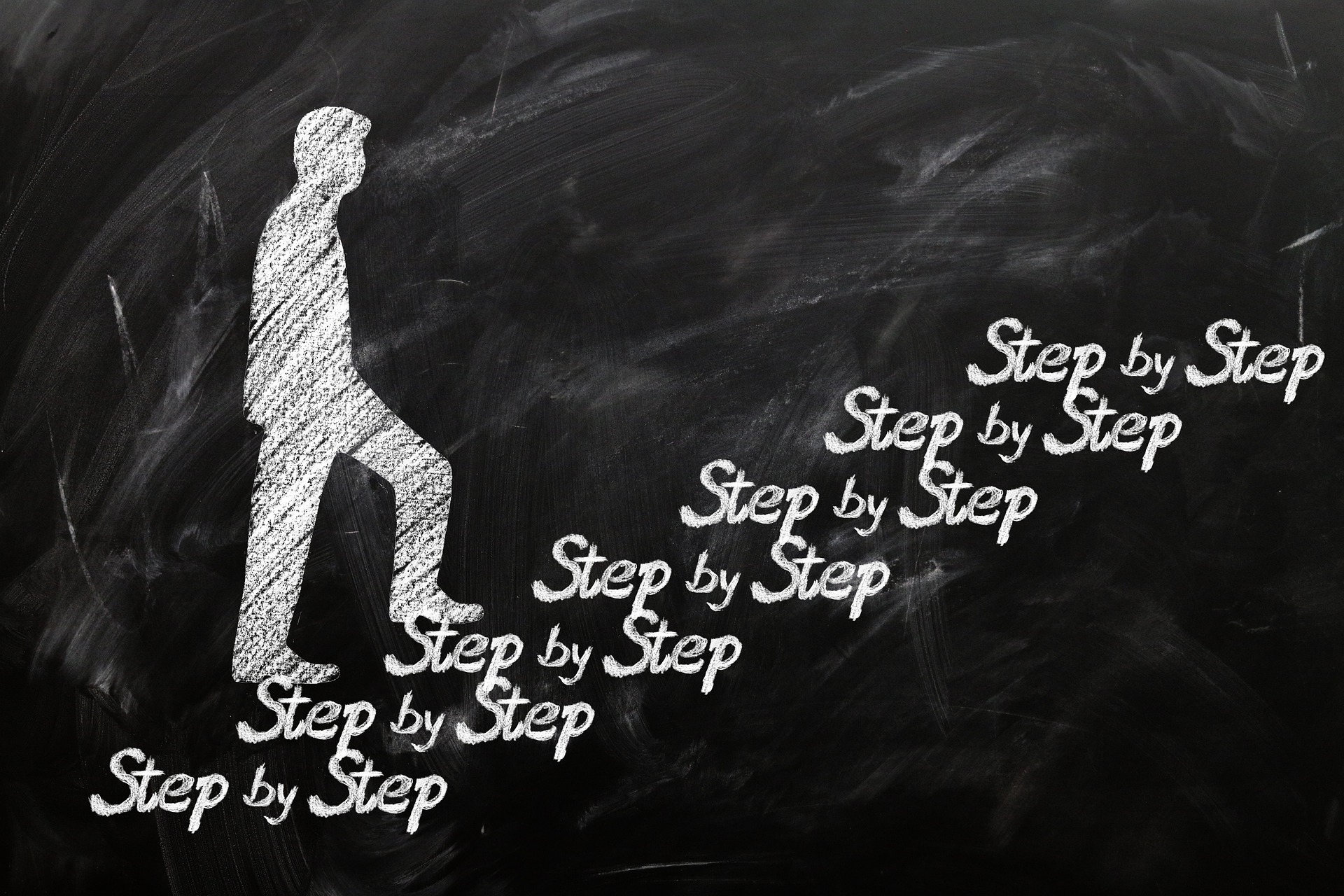
Quote #13:
“As I would not be a slave, so I would not be a master.”
~ Abraham Lincoln
This is part 2 of the 13th quote in a series titled, 16 Principles of Happiness from the 16th President.
Slavery may be dead as a formal institution of human bondage, but it is alive and well in the hearts, minds and lives of too many people who have the ability to loose the shackles, but haven’t exercised the courage to do so yet.
While Lincoln famously said, “I will not be a slave,” the second half of the sentence is the historically important part:
“… So I would not be a master.”
No one should ever be a master of another man or woman … except one … yourself!
But with the end of the Civil War in 1865 and the immediate disappearance of the slave-owning class, we should pause here to define what I mean by the term:
Master: “One having authority over another; one that conquers or masters.”
~ Merriam-Webster
All of us are either internally or externally driven. Or we are some combination of the two. But the point here is that the locus of control comes either from within or from without. External control is slavery. It may be voluntary servitude, of course, but it is being subservient to a dominating influence nonetheless. We relinquish control to the environment or to something or someone in it, enslaved to external conditions.
Or we master ourselves, find the internal locus of control and harness the will to steer the ship of our own lives to the shores of our own choosing. Self-mastery puts us at the helm. Not only do we choose the destination, and the route to it and the number of stops and detours along the way, and our cruising speed in the process, but most importantly for our happiness, as masters at the helm of our own lives, we can choose how we will interact with, and interpret and respond to, life on the open waters.
It’s true, however, that we don’t control what is in the water as we plot the courses we travel. And storms can develop very suddenly and very unpredictably. But masters decide how they will deal with those storms and what the storm will ultimately mean to them and how they will be affected by them.
But what if you have spent years trying to master some aspect of your life but fall short every time. What if the will just isn’t there? What if you try, then give in, almost like clockwork, predictably? Looking at self-mastery as a muscle helps: If you exercise it, it will grow.
Following are ways you can exercise the muscle of self-mastery until it is strong enough to overcome any self-enslaving, self-defeating trait or habit that is currently a stumbling block to your joy and happiness.
10 Simple Ways to become your own Master
1. Go on a budget. The self-discipline needed for living by a budget can help develop self-mastery. Believe me, I know.
2. Develop a talent that requires daily practice. The commitment to a consistent and regular practice schedule needed to improve and develop a talent, again, builds inner resolve and strength that can help overcome the pull of surrender in other areas of your life.
3. Fast. Fasting a meal or two or more (get your doctors clearance first) can help develop deep reservoirs of self-control and self-mastery. The physical desire for food, the hunger to be satisfied, will be weakened over time, becoming subservient to a higher part of you. Buddhist monks regularly fast for purification purposes and for clearing their minds. Hindus fast to better concentrate during meditation. Fasting can help you build bigger, stronger self-mastery muscles as well.
4. Meditate. The ability to calm the mind, clearing it of thought also builds self-mastery. It requires focus and practice and discipline.
5. Pray. Similar to meditation, prayer requires focusing the mind as well, keeping your thoughts from drifting, staying present, addressing Deity. While you’re there, you might as well throw in a request for improved mastery over whatever issue is of most concern.
6. Exercise. Running, walking, cycling, hiking, playing a sport, martial arts, any kind of regular workout builds inner strength. Our resolve to act in the face of the urge to sit, to rest, to watch TV, to take the path of least resistance, can be a great source of inner mastery.
7. Stop eating before you’re full. The self-control necessary to do this will benefit you elsewhere in your life as well. It’s been said, for that matter, that if you can’t control how much you eat, you will not likely be very successful at controlling other areas of your life.
8. Give up something you like for some set amount of time. Faithful Catholics do this every year for Lent. Try it. Don’t eat refined sugar for a week or a month. Don’t gossip for a set period of time. No pizza or potato chips for a week or two. It will strengthen your will and inner conqueror.
9. Perform feats of difficulty. Here’s the principle: To attain self-mastery over selfishness and desire, Hindu and Buddhist and even Christian ascetics have been known to subject themselves to extreme challenges and deprivations like going a month or longer with one arm raised above their heads or hopping on one leg for a year or taking vows of silence or isolation or meditating by an ice-cold river nearly naked, dipping blankets in the icy water and throwing them over their own shoulders as they meditate. Apparently, it works. Good news is that we don’t need to go to such extremes to benefit from the principle embedded in those extremes.
Here’s a (fairly) practical guide to applying the principle:
- Climb a mountain
- Ride your bike to work for a month (you just might keep doing it!)
- Run a marathon
- Train for a decathlon
- Overcome a fear (heights, speaking in front of others, spiders)
- Read the dictionary
- Go back to school and get a degree
- Learn yoga
- Learn a martial art
Again, the point is to do something difficult, thereby strengthening the inner over the outer being, conquering and subduing the physical and carnal to the spiritual and moral. My list should be considered only a starting point to begin considering ways of mastering that part of our natures and harnessing the strength that rests dormant in many of us.
10. Start small and build on small successes. The momentum each small victory will generate, no matter what kind of success or how tiny the success might be, will build more confidence to tackle even bigger issues. This way, step by step, you will become the master of your vessel.
Afterthoughts
“As I would not be a slave, so I would not be a master.” Lincoln stated well a moral principle that the U.S. was slow to accept in law. Let’s not be so slow to accept the idea that neither should we be slaves to outside forces, circumstances and urges. Instead, let’s learn to conquer ourselves, learn self-mastery. Happiness will be had in greater abundance because of it.
What Do You Think?
- Did I leave anything off?
- What would you add?
- Please share your thoughts in the comments!
If you liked what I posted, please Like it and/or Stumble it. And don’t forget to subscribe. It’s FREE!
Click on any of the posts in this series for further reading:
- 16 Principles of Happiness from the 16th President
- We’ve Seen Lincoln on the Penny; Now let’s hear him on Happiness!
- Tearing Down and Building Up: Envy and Success
- There’s More than One Way to Live Forever … Leaving a Legacy
- 5 Enslaving Habits We Must Avoid
- 10 Practical Ways to Develop Self-mastery
- You Have To Do Your Own Growing No Matter how Tall Your Grandfather Was
- 10 Ways You Too Can Stop Being So EASILY Offended
- A House Divided is Happiness Diminished
Photo by Pixabay







































The 10 simple ways to become a master are simple and great! It is much better to become a master than stay a slavery. And here are some great tools to start to become a master 🙂
Thanks for sharing.
Hi Marc!
Glad you found value in the list. I think the simplest tools get used most often to actually change lives. Complex programs and systems can serve a purpose, but in the end, if too complex to stick with, they do little good. It’s the simple things that often are resonsible for the greatest good in the greatest number of people.
Thank you so much for sharing your thoughts!
i like the idea of being a master of my own self by controlling my habits (eating habits…others eetc)
that’s a great post Ken 🙂
Thanks, Farouk!
So many people are so deeply enslaved to their urges and appetites. Life, as you know, is more richly rewarding and happy when we have mastered our passions and use them to serve our higher selves.
Be good, my friend!
Wonderful way to enlighten people about slavery. I feel number 1 is very important. A budget. We can be enslaved with what society things we need rather than what we really need when it comes to the material world.
As for the eating I have to bow out. I really get in a nasty mood if I don’t eat and then the weight falls off to easy and i really can’t afford that.
By conquering our selves we do set ourselves free. It is a wonderful feeling and than we find our happiness.
Thank you for sharing your thoughts and reminding us to stop and set ourselves free.
Blessing,
Debbie
Hi Debbie!
Thanks so much for adding clarity to the post! You are so right about moving from what society and advertizers work so hard to try to get us to think we need. Budgets help us focus our priorities so that we can begin to recognize the difference between what we need and what we want.
The weight falls off too easy? What nice “problem” to have! 🙂
Have an amazing day, Debbie!
Hi, Debbie, as people need the discipline to not overeat, some need the discipline to actually eat, and eat right, I’ll bet a lot of people wish they had your problem.
hello ken
how are you?
thanks for sharing this topic and highlighting the importance of being our own masters.
i believe that leads us to a true form of authenticity and causes us to build confidence in who/what we are.
it also creates an avenue to discover our talents as well engage in self discipline and live by principles.
the tips you’ve shared for self mastery are quite useful and simple to follow and your emphasis on performing the feats of difficulty is spot on. I believe engaging in such feats stirs up courage, determination and confidence within us.
take care and enjoy the rest of the day
Hello, Ayo!
So good to hear from you and thank you for sharing your insights here at M2bH.
Great point about discovering talents as we build self-mastery and, as you so insightfully add, build courage, determination and confidence by performing feats of difficulty.
[…] 6. Exercise. Running, walking, cycling, hiking, playing a sport, martial arts, any kind of regular workout builds inner strength. Our resolve to act in the face of the urge to sit, to rest, to watch TV, to take the path of least resistance, can be a great source of inner mastery. Continue Reading here […]
Thanks for sharing these simple but powerful tips on self mastery. I never saw the connection that if you master simple things like just saying no to more food when you are full, or sticking to a budget will help you master bigger things that you are trying to achieve.
These are all islamic teachings! we are told to do this since childhood. little by little as we grow old.
The ten practical ways were great and easy to understand. Now I’ll test myself and see if I can stick to them as I implement them into my daily life. Thanks for the clarity and comments from others. Nameste
Just Awesome 🙂
In our life mostly we suffer from people who try to show their superiority and let us down, but a disciplined man’s attitude would be enough for a self centered person.
Super I am so happy
Twitter: kingsleyaigbona
said :
Great thoughts. Thanks for sharing.
Hi, Ken, this is my first time on your site and this post is great, those are good points a lot of people would benefit from but the only people you will get is those who seek this type of knowledge.
I try to put those things into practice, but it’s always good to see someone put it to paper to reinforce a person’s learnings.
Anyhoo, thanks for the post, I’m always seeking more knowledge to enhance myself and to pass on to anyone who seeks.
The tips are very helpful,thank for sharing…i will try my best to meditate them.
Take cold showers. I cannot stress this enough for adults.
very informative article about self mastery. you need to be more practical in life.
Great Post ! I read this post . sometime i think how can i hack my self control . But now i know that habit is very importent.
That article on mastery of the self is very enriching . Thanks for it .
the steps of self mastery that you have mentioned are very important.Islamic religion consides pray , fasting , and meditation as part of worshipping allah .
true believers apply all these things in their everyday life
Ken Wert, your wisdom on self-mastery is inspiring. Embracing self-discipline through challenges, talents, and choices empowers us to be the masters of our lives. Your insights offer a path to a fulfilling existence. Thank you for sharing such valuable guidance.